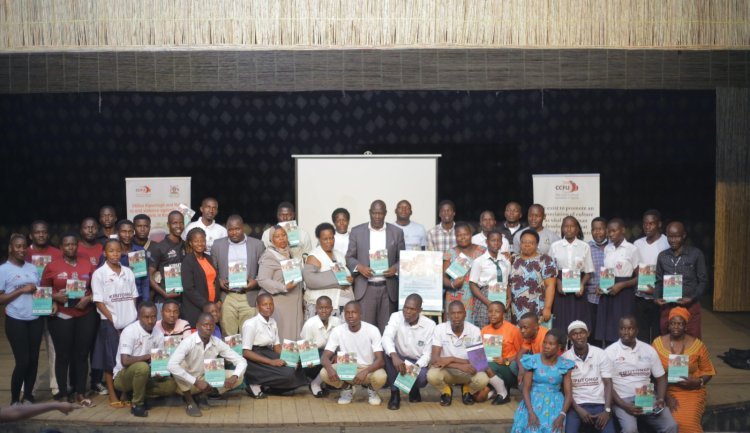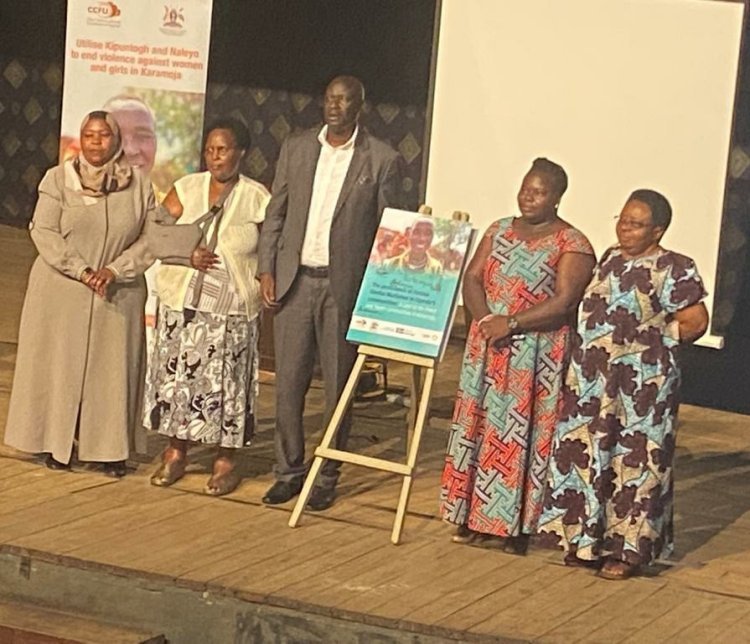Female Genital Mutilation practices are still persistent in Karamoja – CCFU Report

The Cross-Cultural Foundation of Uganda (CCFU) has released a report on the persistence of female genital mutilation practices in Karamoja. This happened during CCFU’s cultural exhibition where young people showcased cultural resources that address violence against women and girls at Ndere cultural center
Female Genital Mutilation/cutting/ circumcision (FGM)) is a traditional cultural practice in some traditional societies of Uganda. The practice is strongly associated with rites of passage or transitioning of young girls from childhood to womanhood.
The practice was outlawed in Uganda by the government when it passed the Prohibition of Female Genital Mutilation Act of 2010. Since then, the practice continues despite the communities being aware of its illegality and the negative consequences on one’s health.

CCFU’s research was therefore aimed at interrogating the reasons for the persistence of the practice despite being outlawed by the government as well as exploring alternative rites of passage which could possibly be adopted to signify the passage of girls from childhood to womanhood.
The prevalence of FGM is low and is estimated at 1.4% among women and girls between the ages of 15-49. It is mainly practiced by the ethnic groups of the Sabiny (estimated at about 50%) living in the Eastern region, the Pokot (almost universal estimated at 95%) in the Karamoja region in North-Eastern Uganda bordering Kenya.
During the research study conducted in two cultural communities of the Pokot of Amudat district, and the Tepeth of Moroto district, it’s noted that most of the respondents interviewed say that cutting is done secretly and some of the girls cross the border to the Kenya to be cut and only return after they are healed.
The study findings further reveal that FGM among the Pokot and Tepeth is linked to cultural identity, a reason why the practice has persisted even after being outlawed by the government.
“The attachment of FGM to the cultural communities practicing it is demonstrated by the high level of confidentiality with which it is done; consequently, from the police stations in Amudat, there is little information/ statistics on the number of women or girls that have been cut.” The report reveals.
It also highlights that, “Because of the law, the Tepeth have modified the practice. The dress code, ceremonies/rituals and songs have all been abandoned. The desire for recognition and being assigned responsibilities in society are some of the reasons driving the practice. For instance, according to the Tepeth, the uncircumcised woman cannot be allowed to milk cows, touch granaries or be confirmed for marriage.”
Some key challenges highlighted in implementing the ban on FGM in these areas of Karamoja include the small capacity of police officers, tough terrain that makes patrolling difficult, and limited financial resources.
Prior to the launch of the research findings, CCFU held a regional launch in Amudat district with representation from the Tepeth community from Moroto and the Pokot from Amudat. The research findings were disseminated at the event and stakeholders meeting was held to draw a road map on pretesting Kipuntongh as an alternative rite of passage for girls in Amudat.
Exhibition of cultural resources that address violence against women and girls.
At the event, young people from 6 cultural communities (Acholi, Alur, Busoga, Buganda, Karamoja and Tooro) where CCFU implements its Culture for Her Project exhibited cultural resources that address violence against women and girls.
The exhibition is out of drawing competition where young people illustrated these resources. Different panels of cultural experts selected winning entries from the over 200 that were collected. CCFU used the entries to produce booklets that highlight these resources and used 22 of them to organise a national exhibition.





























